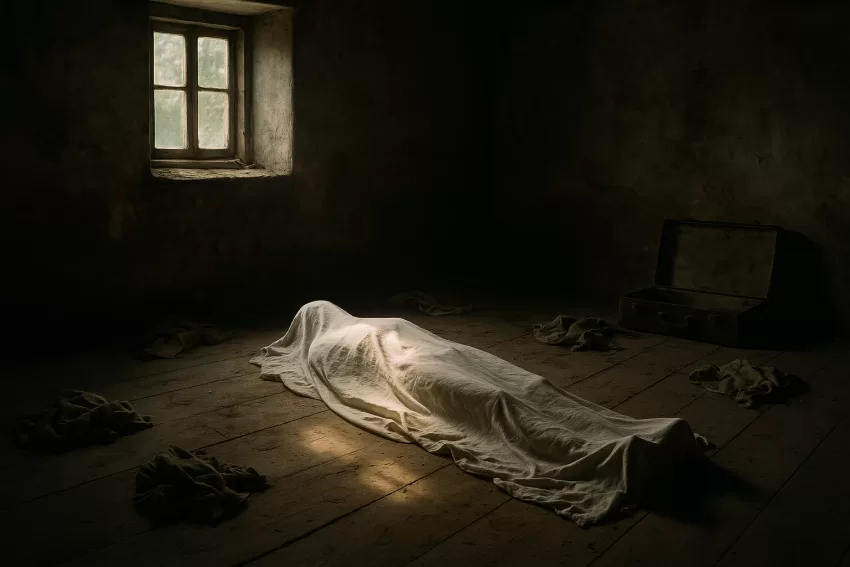“I believed him. I loved him. I thought I was doing the right thing.” These are not the words of a hardened criminal, but of a Czech dentist and former teacher — two ordinary women who, under the influence of a charismatic self-proclaimed healer, killed him with their own hands. And then, perhaps even more shockingly, called the police.
The murder of Richard Šiffer, the central figure of what the media now calls the “Kutná Hora sect,” is a case that shocks by its simplicity — and disturbs by what it reveals about the human mind’s vulnerability to manipulation, belief, and perceived righteousness.
In June 2025, the Regional Court in Pardubice sentenced the two women — one to 12 years and the other to 13 — for murdering Šiffer in a remote village near Kutná Hora. The verdict: homicide. But the story is far from straightforward.
The despotic “healer”
Richard Šiffer was not a licensed medical practitioner. He called himself a spiritual healer, practiced “energy manipulation”, and claimed divine insight. Over time, he built a small, devoted community of followers — mostly educated women — whom he gradually isolated from their families, professions, and critical reality.
Behind the mask of care, Šiffer acted with calculated dominance. He frequently diagnosed his followers with fabricated or exaggerated health conditions and prescribed costly “treatments,” all paid directly to him. Despite portraying himself as a benevolent guide, his behavior was marked by psychological control and financial exploitation. According to police, after his death, investigators found 134 million Czech crowns — nearly 5.3 million euros — among his belongings.
His communication was laced with esoteric mysticism and authoritarian commands. He demanded strict obedience, imposed diets and celibacy, and dictated followers’ personal and spiritual routines. When he eventually announced he could no longer endure the “burden” of his physical body, he instructed his most loyal followers to help him “leave this world.”
A body that would not disappear
In December 2023, the women carried out what they believed was a sacred act: they strangled Šiffer to death by their own hands, following his explicit instruction. They believed — or had been made to believe — that his body would vanish, disappear, transcending the material world as proof of spiritual fulfillment. But to their surprise… the body did not disappear.
Shaken by the stark reality, women tried to cover their murder, but later, it was the women themselves who contacted the police, in a state of spiritual disillusionment. Their belief system had broken. Reality asserted itself in the most irreversible way.
One of the most striking aspects of the court proceedings was the conclusion drawn by expert psychiatrists and the court itself: none of the involved individuals suffered from mental illness or delusions. Not even Šiffer. His manipulation was intentional, calculated — and disturbingly effective.
The women, too, were judged to be mentally competent. They were not psychotic. They were not hallucinating. They acted under powerful emotional and psychological influence, but with intact reasoning. This, paradoxically, makes the case even more chilling.
Critical thinking, or the absence thereof
This tragedy is not simply about a charismatic fraud and his victims. It is about the slow erosion of judgment through trust, reverence, and fear. It is about how educated, intelligent individuals (in one of the most atheistic country) can surrender their autonomy when they come to believe they are following a higher truth.
The “Kutná Hora sect” was not a large organization. It wasn’t well-known. But it ended with one dead, two imprisoned, and many more psychologically wounded. The real danger lay not in supernatural powers — but in ordinary mechanisms of psychological manipulation, emotional dependence, and the abdication of skepticism.
This is why critical thinking is not just academic. It is a tool of survival. A bulwark against the seductive pull of certainty offered by those who claim to know what lies beyond life — and demand your life in return.
Sources:
iROZHLAS.cz: 12 a 13 let vězení. Ženy z kutnohorské sekty jsou vinné z vraždy léčitele Šiffera
Seznam Zprávy: Zubařka a učitelka odsouzeny. Vraždu nelze akceptovat, ani když pevně věříte
Echo24.cz: Za vraždu vůdce kutnohorské sekty uložil soud zubařce 12 let vězení
CNN Prima NEWS: Kauza usmrcení vůdce kutnohorské sekty: Soud vyřkl verdikt nad seniorkou a zubařkou
Extra.cz: Zubařka, která zabila vůdce sekty na jeho vlastní žádost, putuje za mříže
iROZHLAS.cz: Zubařka obžalovaná z vraždy léčitele u soudu zkolabovala
Seznam Zprávy: Bála se to neudělat, říká advokát zubařky ze sekty. Žaloba chce 14 let
iROZHLAS.cz: Tematická stránka – Stoupenci: Kutnohorská sekta
Featured image: Sora.com, AI generated picture.
